
ICAS Bulletin (online ISSN 2836-3418, print ISSN 2836-340X) is published every other week throughout the year at 1919 M St NW, Suite 310, Washington, DC 20036.
The online version of ICAS Bulletin can be found at chinaus-icas.org/bulletins/.
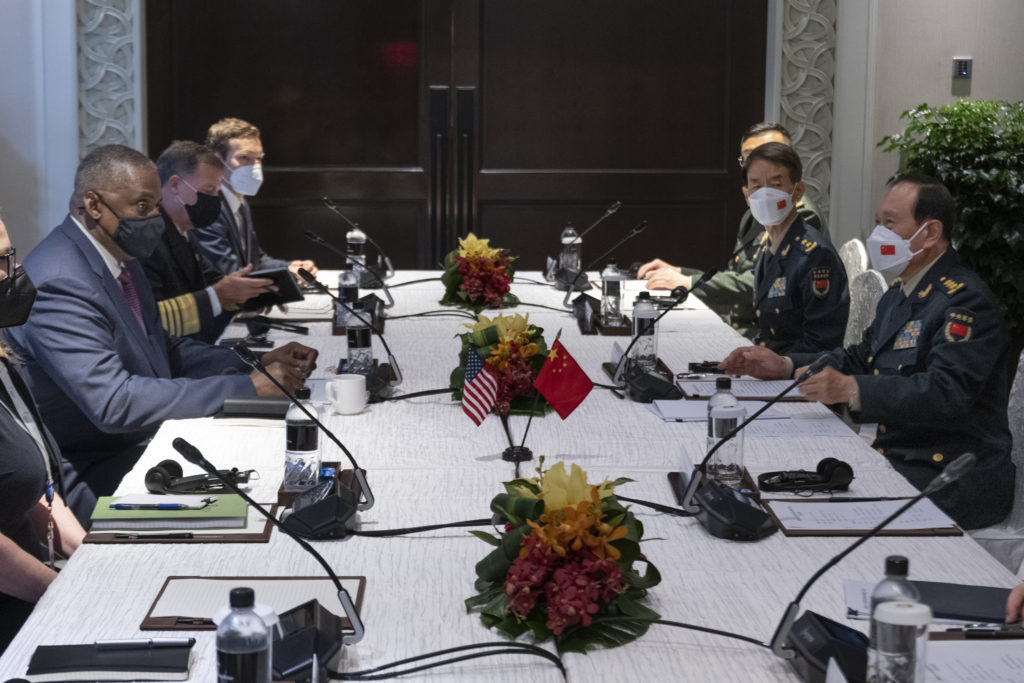
– On June 13, U.S. National Security Advisor Jake Sullivan met with China’s top foreign policy official Yang Jiechi for a four-hour meeting in Luxembourg.
– Washington described the meeting as an important step towards “reducing risk” in the U.S.-China relationship, and mentioned that the officials discussed a range of topics, including escalating military activity in the Taiwan Strait, the Ukraine conflict, and China’s recent veto of a UN resolution sanctioning North Korea.
– From June 10-12, the 19th Shangri-La Dialogue, an annual defense conference organized by the London-based think tank International Institute for Strategic Studies, was held in Singapore.
– U.S. Secretary of Defense Lloyd Austin met with his Chinese counterpart Wei Fenghe for the first time in advance of the summit.
– Both sides mentioned in their press releases that Taiwan featured prominently in the discussion, but they avoided mentions of hostility and welcomed the talks as a positive step toward more regular communication.
Associated News Sources:
“US national security adviser meets China’s top diplomat, paving way for potential Biden-Xi meeting”, CNN, June 14
“Two top US and China officials meet for a third time this year to ‘reduce risks’”, South China Morning Post, June 14 [Paywall]
“Readout of National Security Advisor Jake Sullivan’s Meeting with Politburo Member Yang Jiechi”, The White House, June 13
“Biden official meets with China’s top diplomat for four hours in Luxembourg”, The Hill, June 13
“At first meeting, U.S., China defense chiefs call for more communication”, The Washington Post, June 10 [Paywall]
“China, US defence chiefs square off on Taiwan, Ukraine in first face-to-face talks”, South China Morning Post, June 10 [Paywall]
“U.S., China Defense Chiefs Dial Down Tensions Over Taiwan”, The Wall Street Journal, June 10 [Paywall]
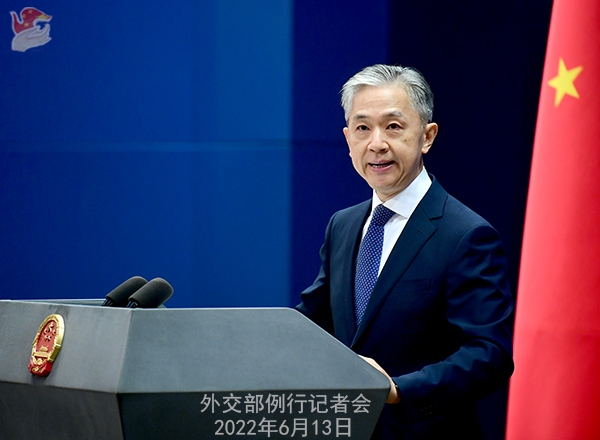
– From June 15-22, U.S. and Taiwanese military personnel held talks in Annapolis to discuss the sharing of weapons systems and strategies that could be used to defend against a military operation from the mainland.
– On June 13, in response to a statement by Taipei referring to the Taiwan Strait as “international waters,” Chinese Ministry of Foreign Affairs spokesperson Wang Wenbin stated that “China enjoys sovereign rights and jurisdiction over the Taiwan Strait” and that “there is no such thing as ‘international waters’ in UNCLOS [The United Nations Convention on the Law of the Sea].”
– On June 14, in response to MFA spokesperson Wang’s statement, U.S. State Department spokesperson Ned Price rebuffed Beijing and described the Taiwan Strait an “international waterway…where high seas freedoms, including freedom of navigation and overflight, are guaranteed under international law.”
– On June 11, speaking at the Shangri-La Dialogue, Secretary Austin criticized China’s increasing activity in the Taiwan Strait, saying“our policy hasn’t changed, but unfortunately that doesn’t seem to be true for the PRC.”
– Defense Minister Wei Fenghe hit back at Secretary Austin’s comments, demanding that the U.S. stop “smearing and containing China and interfering in [its] internal affairs.” Wei also promised that China will “fight to the end” if the U.S. forces a confrontation over Taiwan.
Associated News Sources:
“Taiwan-US security and military talks will discuss weapons and strategies to defend island against Beijing”, South China Morning Post, June 15 [Paywall]
“U.S. rebuffs China by calling Taiwan Strait an international waterway”, Reuters, June 14 [Paywall]
“China insists it has sovereign rights over Taiwan Strait”, Yahoo!, June 13
“China Defense Minister Says Nuclear Buildup Is Justified”, The Wall Street Journal, June 13 [Paywall]
“China calls U.S. a ‘bully,’ vows to ‘fight to the end’ for Taiwan”, The Washington Post, June 12 [Paywall]
“US: China’s military activity around Taiwan threatens region”, AP News, June 11

– On June 19, Chinese Ministry of National Defense announced its “ground-based midcourse anti-missile intercept technology test has “achieved its expected purpose”.
– On June 17, the first aircraft carrier designed and built in China, Type-003 Fujian, was launched. The U.S. Department of Defense regarded this as China extending beyond coastal and shipboard missile systems range.
– On June 12, Chinese Defence Minister Wei Fenghe reiterated China’s position as a responsible power and stated it was “natural” to develop new weapons to protect the national interest.
– U.S. Defense Secretary Lloyd Austin accused China of “political intimidation, economic coercion, or harassment” towards Indo-Pacific countries and vowed to support its partners.
– Chinese Vice Foreign Minister Xie Feng defended the security agreements with the Solomon Islands and accused the U.S. of turning the South Pacific into “a boxing ring” for the US-China rivalry.
Associated News Sources:
“China says it tested missile-interception system”, Reuters, June 19 [Paywall]
“China upgrades its naval force with its first indigenous aircraft carrier”, NPR, June 17
“Don’t turn South Pacific into US-China geopolitical ‘boxing ring’, Beijing says”, South China Morning Post, June 13 [Paywall]
“China fires back at US claims of aggression as it admits to developing new weapons”, Financial Times, June 12 [Paywall]
“US defense chief says China muscling neighbors, plundering resources in Pacific”, CNN, June 11
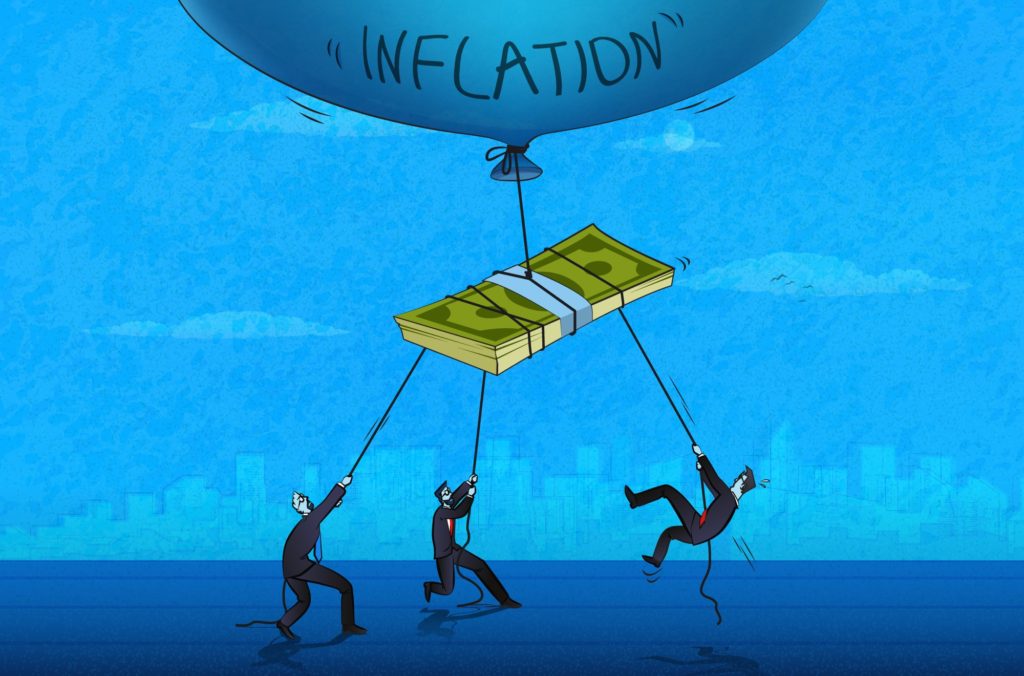
– On June 19, U.S. Treasury Secretary Janet Yellen and Energy Secretary Jennifer Granholm confirmed the possibilities to remove some tariffs on China and pause the federal gas tax to combat inflation.
– The Federal Communications Commission Chair Jessica Rosenworcel told Congress that deficiencies in two-thirds of applications to reimburse U.S. carriers for removing equipment from Chinese companies were deemed national security threats.
– Chubb CEO Evan Greenberg called for an “interest-based approach” for more U.S. business engagement with China, while holding firm in case of national security threats and unfair trade practices.
– U.S. Bipartisan supporters agreed on revised text requiring companies and investors to disclose new outbound investments that needed to be authorized on national security grounds, aiming to protect technologies and rebuild critical supply chains countering China.
– Former Treasury Secretary Larry Summers advocated for easing tariffs on China, as inflation increases domestically and a recession would “more likely than not” occur within the next two years.
Associated News Sources:
“U.S. reviews China tariffs, possible gas tax pause to curb inflation”, Nikkei Asia, June 20 [Paywall]
“Chubb CEO Evan Greenberg urges US businesses to stay engaged in China market”, South China Morning Post, June 15 [Paywall]
“FCC says most requests for funds to replace Chinese telecom equipment are deficient”, Reuters, June 15 [Paywall]
“Lawmakers Make Bipartisan Push for New Government Powers to Block U.S. Investments in China”, The Wall Street Journal, June 14 [Paywall]
“Former Treasury head urges tariff cuts, warns of recession”, Politico, June 12

– On June 21, manufacturers and retailers braced for chaos as the U.S. Customs enforced the Uyghur Forced Labor Prevention Act, a ban on imports from China’s Xinjiang region in response to reports of widespread human rights violations in the region.
– On June 15, UN Human Rights Chief Michelle Bachelet confirmed that she couldn’t speak to any Uygurs currently detained or their families” during her trip last month.
– On June 14, 47 countries delivered a joint statement on alleged abuses in China’s Xinjiang region, demanding the UN investigators and experts to observe the situation with “meaningful and unfettered access” provided.
– On June 9, the European Parliament adopted a position stating that China’s alleged human rights abuses in Xinjiang hold a “serious risk of genocide”, condemning China’s treatment of Uygurs and other ethnic Muslims in the northwestern region.
– On May 20, the Biden administration’s Special Coordinator for Tibetan Issues Uzra Zeya visited two Tibetan refugee camps in Kathmandu. Nepali officials feigned ignorance to avoid pressure from China.
Associated News Sources:
“Companies brace for chaos as Xinjiang import ban starts in U.S.”, Nikkei Asia, June 20 [Paywall]
“Dozens of countries call out China at UN over Xinjiang abuse allegations”, South China Morning Post, June 15 [Paywall]
“UN human rights chief ‘not able to speak to’ any detained Uygurs or their families in Xinjiang”, South China Morning Post, June 15 [Paywall]
“Nepal Is Caught Between the US and China on Tibetan Refugee Issue”, The Diplomat, June 9 [Paywall]
“European Parliament passes landslide vote on China’s alleged rights abuses in Xinjiang”, South China Morning Post, June 9 [Paywall]
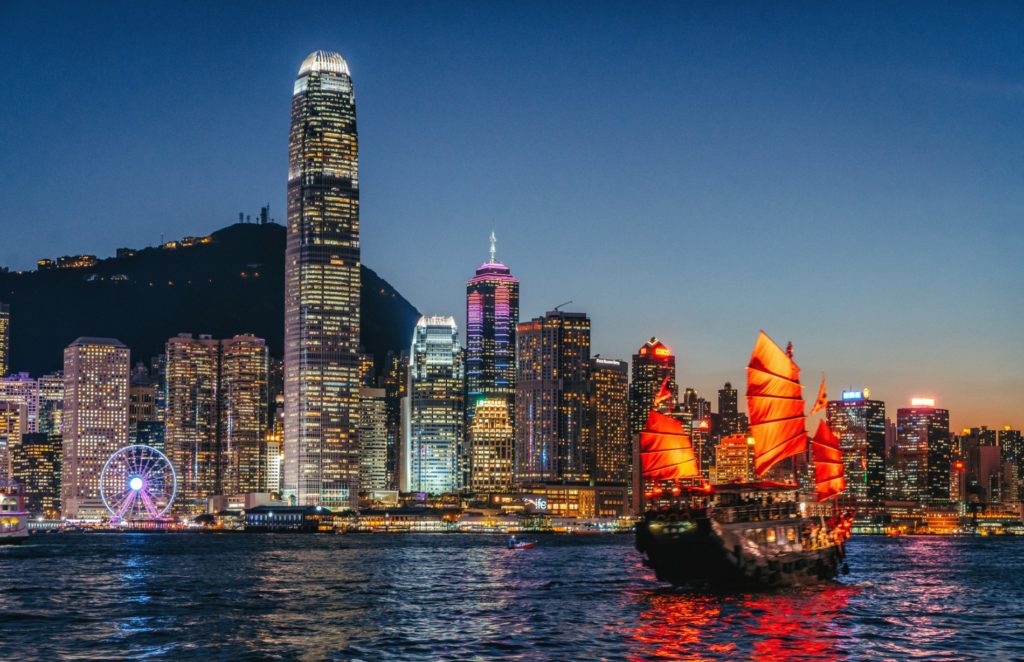
“China’s 1st Horn of Africa envoy offers to mediate in region”, ABC News, June 20
“New Hong Kong Cabinet Includes 4 Under US Sanctions”, VOA, June 19
“TikTok says its American traffic is going through Oracle servers, but it retains backups.”, The New York Times, June 17 [Paywall]
“Leaked Audio From 80 Internal TikTok Meetings Shows That US User Data Has Been Repeatedly Accessed From China”, Buzzfeed News, June 17
“U.S. envoy to China expects ‘zero COVID’ policy to persist into 2023”, Reuters, June 16 [Paywall]
“Taiwan admits paying American lobbyists to help establish closer US ties amid rising pressure from Beijing”, South China Morning Post, June 16 [Paywall]
“Spy agencies’ focus on China could snare Chinese Americans”, AP News, June 15
“Pentagon bankrolls rare earths plant as US plays catch-up to China”, Financial Times, June 14 [Paywall]
“China Releases Bloomberg News Staffer Detained on National-Security Grounds”, The Wall Street Journal, June 14 [Paywall]
“China and Australia break diplomatic drought with ‘frank’ defence ministers talks”, South China Morning Post, June 13 [Paywall]
“Tesla goes ahead with China hiring event after Musk job warning”, Reuters, June 9 [Paywall]
by Matt Geraci
June 21, 2022
Blue carbon was first acknowledged as a field of study in the 2009 United Nations Environment Programme report in recognition of the ocean’s role as the earth’s most significant carbon sink. “Blue Carbon” processes naturally sequester atmospheric carbon dioxide into sediments and conserve marine ecosystems over the long run when it remains undisturbed. These ecosystems typically include coral reefs, mangroves, sea grasses, salt marshes, kelp forests, and more. According to the U.S. National Oceanic and Atmospheric Administration, coastal blue carbon ecosystems, including seagrasses, salt marshes, and mangroves, “store three-to-five times more carbon per unit area than tropical forests, and [sequester] carbon at a rate ten times greater than tropical forests,” making them a crucial component of a country’s carbon emissions stock. Marine protected areas (MPA) are necessary for conserving blue carbon resources in coastal and deep-sea ecosystems. However, history has shown that if geopolitics is the driving force behind their declaration, sovereignty disputes will only intensify. A new, enforceable, and comprehensive international treaty covering the creation of MPAs on the high seas must be drafted and ratified for blue carbon resources to be adequately protected globally.
This commentary was published in China-US Focus on June 21, 2022.
by Sourabh Gupta
June 6, 2022
The 21st century is going to be the Indo-Pacific century simply because it will be the foremost locus of global economic and perhaps military activity during this century. Great power primacy will be made and unmade in the broad Indo-Pacific region. The Indo-Pacific already hosts four nuclear weapons powers, five of the largest military budgets, and six (and seven counting ASEAN as a group) of the largest dozen economies in the world – United States, China, Japan, India, Russia, and Korea. This trend will continue for as far as the eye can see. On the other hand, it merits noting that even with the rise of an assertive China, given the broader distribution of economic and military might in the Indo-Pacific, it is not clear that the broader Asian equilibrium is about to be greatly disturbed. Inferences about an unbalanced and unipolar Asia under Beijing’s domination are off the mark. Washington and Beijing appear rather to be gradually exchanging spots within a rising but balanced (although admittedly in flux) Asia – a vastly different state of affairs from Imperial Japan’s rise a century ago.
This commentary was an interview originally conducted and released by the magazine The Science of Where on June 6, 2022.
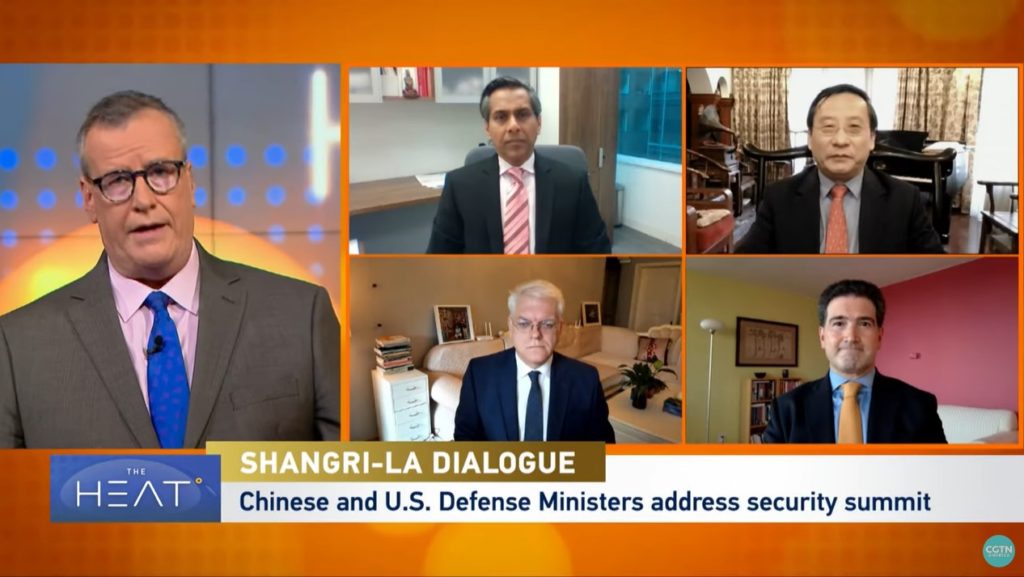
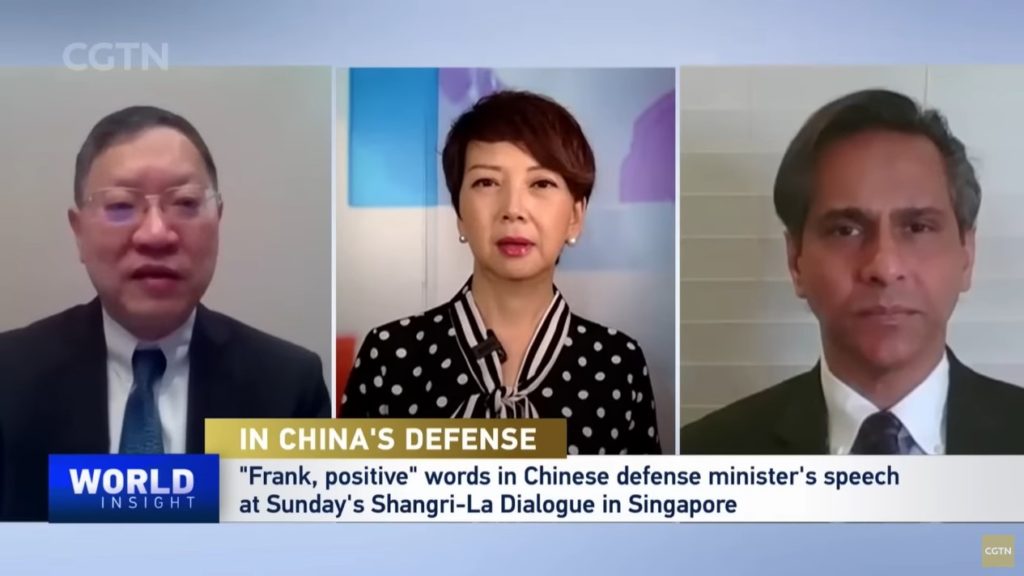
On Tuesday, June 14, 2022, Senior Fellow Sourabh Gupta discussed the discernible outcomes of the Shangri-La Dialogue on CGTN America’s The Heat.
On Monday, June 13, 2022, Senior Fellow Sourabh Gupta discussed the Shangri-La Dialogue and its implications in U.S.-China competition on CGTN’s World Insight with Tian Wei.
On Saturday, June 11, 2022, Senior Fellow Sourabh Gupta discussed the opening of the 19th Shangri-La Dialogue, and the meeting of U.S. and Chinese Defense Ministers which took place on its sidelines, on CGTN America’s The Heat.

The Institute for China-America Studies is an independent nonprofit, nonpartisan research organization dedicated to strengthening the understanding of U.S.-China relations through expert analysis and practical policy solutions.
1919 M St. NW Suite 310,
Washington, DC 20036
icas@chinaus-icas.org
(202) 968-0595
© 2025 INSTITUTE FOR CHINA-AMERICA STUDIES. ALL RIGHTS RESERVED.